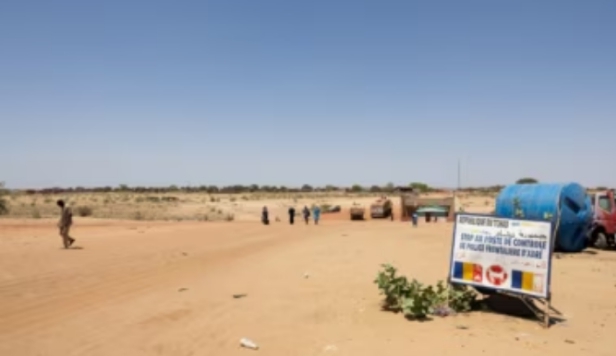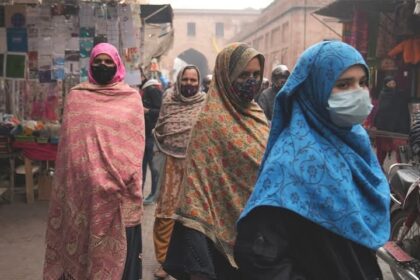By Adeyemi Adekunle
The nation of Chad has continued grappling with a severe humanitarian crisis that has placed the lives of more than 2 million people in jeopardy. This crisis, fueled by a deadly combination of ongoing conflicts and climate-induced disasters, has left the country in desperate need of international aid.
Chad, often ranked among the poorest countries globally, finds itself particularly vulnerable during the June-to-August lean season, a period marked by acute food shortages.
This year, the situation has reached unprecedented levels, as noted by Abdelmadjid Abderahim, Chad’s Minister of Public Health. Speaking on state television, Abderahim issued a heartfelt plea to international partners, urging them to provide immediate assistance to the beleaguered nation.
“The scale of the suffering inflicted on our civilians is beyond what our government can address alone,” Abderahim stated. “We are facing severe food insecurity, exacerbated by inadequate agricultural output due to climate change, recurring droughts, and infestations of migratory pests like birds and crickets.”
The minister highlighted the multifaceted nature of Chad’s crisis, pointing to the devastating impact of recent floods and the continuous influx of refugees. Chad is currently home to over 600,000 refugees from conflict-torn Sudan, and tens of thousands more from the Central African Republic, who have fled violence between rebel groups and government forces. The country is struggling to support several hundred thousand civilians displaced by Boko Haram terrorism.
The compounded pressures of these crises have overwhelmed local resources. The World Bank’s representative in Chad, Rasit Pertev, announced a $60 million contribution to support the government’s efforts, with an additional $100 million to be mobilized soon. However, this financial support, though significant, falls short of addressing the full scope of the emergency.
International organizations have rallied to provide some relief. The World Food Program (WFP), in collaboration with the European Commission, Japan, and the United States, has initiated a program aimed at distributing food, seeds, and cash transfers to the most affected families. The targeted regions include Ennedi East, Wadi Fira, Ouaddaï, Sila, Logone Oriental, Lac, Kanem, and Bahr El Ghazal—areas severely impacted by both conflict and climate shocks.
Foreign donors have also pledged to deliver nutritional supplements specifically for children under two years old, pregnant women, and breastfeeding mothers. These efforts aim to curb the alarming rates of malnutrition among the most vulnerable segments of the population.
The WFP stressed the need for substantial investments in agriculture and measures to mitigate climate shocks. “Reinforcing the purchasing power of the most vulnerable populations is crucial to improving their living conditions,” the organization emphasized.
The call for long-term solutions resonates with the World Bank’s report, which takes crucial look at the pervasive poverty and vulnerability in Chad, with over 42% of the population living below the national poverty line.
As the international community mobilizes to support Chad, the urgency of the situation cannot be overstated. Each passing day without sufficient aid compounds the suffering of millions, making the need for a coordinated and robust response more critical than ever.
On the ground in N’Djamena, the capital city, the atmosphere is tense. Families are stretched thin, struggling to survive amid soaring food prices and dwindling supplies. The government’s call for help echoes through the streets, a stark reminder of the dire circumstances faced by so many.
For the people of Chad, the next few months will be a test of resilience and hope. The global response to this crisis will determine not just the immediate survival of millions, but the future stability and prosperity of a nation teetering on the brink.




